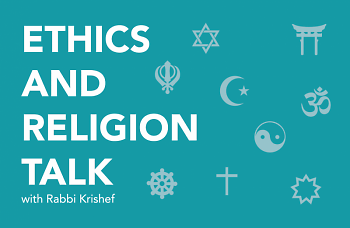I assume that if you are clergy, part of your job is personal counseling. Have you ever engaged in spiritual direction/advising with someone of a different religion? Would that even work? Would you insist that they seek out such services within their own faith, or would you have no issue with it? I find that my faith and practice has grown immeasurably in the last few years since I've taken on a spiritual advisor from a religion not my own. For some reason, the differences don't come up.
The Reverend Colleen Squires, minister at All Souls Community Church of West Michigan, a Unitarian Universalist Congregation, responds:
I have provided pastoral counseling to people outside of my Unitarian Universalist faith. Often this happens because we are welcoming and affirming of the LGBTQ+ community and their faith is not welcoming. I have also met with people who are new to our faith and they have questions about UUism. During my time as a hospital chaplain I would visit patients of any faith [and] we could find common ground in these encounters. But as a rule I would not seek to counsel someone outside of my faith. I am also not a spiritual director—it is my understanding that takes special credentialing which I do not have. I believe spiritual directors, like hospital chaplains, would meet with people from all faiths.
Rev. Ray Lanning, a retired minister of the Reformed Presbyterian Church of North America, responds:
Presbyterian and Reformed ministers should be ready to help anyone, regardless of their church membership or lack thereof. The counseling situation is a two-way street—both parties have something to give [and] something to gain. If someone is willing to listen to me, I am ready to listen to them. The members of my congregations have in general exercised great freedom in choosing which bits of my counsel or advice to follow, and which to ignore. It is helpful if we both start from the same principles and beliefs, or at least have some idea of where we may differ. But as has been truly said, we are all beggars telling other beggars where to find bread. Knowledge and wisdom are God’s gifts to mankind in general and no one can claim exclusive rights to them.
Fred Stella, the Pracharak (Outreach Minister) for the West Michigan Hindu Temple, responds:
Over the years I have counseled a number of non-Hindus on various aspects of spirituality. I can only hope that those at the other end of my yammering found it as rewarding as I have. In situations such as these, what’s important is to stay focused on [the] matters at hand and not get sidetracked on the labyrinthine paths of theological minutia that may lead to debate or frustration. Anyone who approaches me with an issue knows who and what I am. So, for instance, someone who strongly holds the traditional Western view of the afterlife isn’t going to come to me for my insights on that. But that same person might want to learn to meditate or resolve a family dispute. Anyone who might approach me with a question of doctrine outside of the Hindu Dharma would be advised to seek help within their own faith community.
My response:
It is a serious matter to engage in any form of counseling. Some clergy have sought degrees related to counseling, others focus more on teaching or preaching or religious or spiritual counseling in ways that do not need focused, advanced training. Some rabbis are specifically trained in spiritual direction, which does not require that the spiritual director and the client be of the same faith. For those who are well trained, the religious differences do not matter. Your testimony is a demonstration of that.
I have not taken training either in spiritual direction or counseling, so I do not take on clients of a different faith unless they are seeking conversion to Judaism. Instead, I refer them to their own pastor or someone else of their faith.
This will be the final regular column of Ethics and Religion Talk. After almost 13 years and over 600 columns, it is time to retire the column. I have been grateful to the Grand Rapids Community Media Center, publisher of TheRapidian.org, for hosting us for the past three years. If you have enjoyed reading the columns, I urge you to thank the GRMC by making a donation at https://grcmc.org/rapidian/donate.
While this column has had decent readership from The Rapidian’s followers, it has not had the level of engagement in the form of comments on columns and questions for the panel that we had when being published by more mainstream media. This has made recruitment and retention of panelists difficult. In the coming weeks, each columnist will be given a chance to write about a favorite column and how being a part of this conversation has affected them.
This column answers questions of Ethics and Religion by submitting them to a multi-faith panel of spiritual leaders in the Grand Rapids area.
The Rapidian, a program of the 501(c)3 nonprofit Community Media Center, relies on the community’s support to help cover the cost of training reporters and publishing content.
We need your help.
If each of our readers and content creators who values this community platform help support its creation and maintenance, The Rapidian can continue to educate and facilitate a conversation around issues for years to come.
Please support The Rapidian and make a contribution today.
